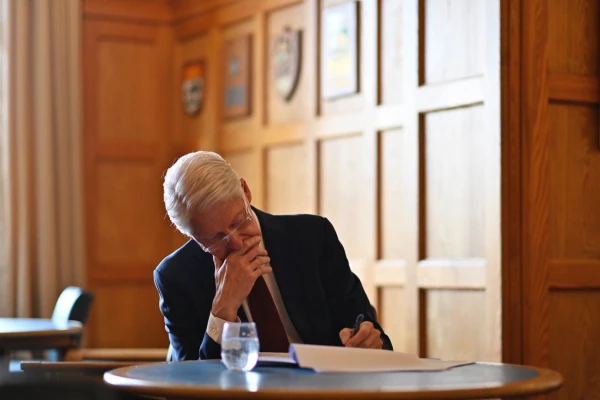
This Wednesday, the Supreme Court of Estonia ruled that a service provider cannot inform the consumer about a price change merely with a note at the end of the bill, as such a method of notification does not give the consumer a clear understanding that the company intends to change the terms of the contract, writes Postimees.
The dispute began when a private customer of the company Alexela, while reviewing gas bills for January and February of the year before last, discovered that the company had raised the price of natural gas. When the customer contacted Alexela's support service, they explained that he had been notified of the price change in one of the previous bills.
The information about the price change was added at the end of the bill in fine print. The customer claimed that Alexela did not inform him of its intention to raise the gas price in a manner that would be understandable to him as a consumer.
The customer believed that he had paid more for the gas consumed than he should have under the contract, and in April of last year, he filed a lawsuit against Alexela in the Tartu County Court, demanding the return of the unjustly overpaid 1220 euros and a penalty.
Alexela argued that the terms of the contract allowed for notifying about price changes in the bill, that such practice in communication with customers had been used for many years, and that the consumer was obliged to read the bills, even if payment was made automatically by direct debit, as in this case.
In February of this year, the Tartu County Court dismissed the customer's lawsuit against the company, after which he filed an appeal. At the end of May, the Tartu District Court upheld the complaint. In response, Alexela filed a cassation complaint, which was dismissed by the Civil Chamber of the Supreme Court last Wednesday.
The Supreme Court ruled that the purpose of the bill issued to the consumer is to reflect the volume and cost of the consumed service over a specific period, and the consumer is not required to assume that there are significant changes to the contract hidden in the bill. The court also noted that consumers cannot be required to examine each bill to discover changes in the contract.
The Supreme Court also ruled that if a company wants to change the contract, the information about this must be presented clearly and in such a way that the consumer can consciously agree to the changes or terminate the contract.
"If a company hides a price increase in a footnote printed in fine print at the end of the bill, the consumer is not obliged to conduct a detective investigation to discover it – the Supreme Court has drawn a clear line here," commented the decision by Viljar Kähari, a jurist at the Kähari law firm, who advises energy and financial companies as well as consumers on drafting and interpreting standard terms. "This decision confirms that consumers must be notified of changes to the contract in a form that is understandable to them. A bill is an accounting document, not a place for hidden messages about price increases. Impartial and clear communication is not a formality, but one of the fundamental principles of consumer rights protection."
According to Kähari, the position of the Supreme Court is principled and its significance goes far beyond the gas sector case. First of all, he said, the decision establishes that a service provider cannot hide changes to the contract in the so-called "fine print" of the bill, expecting the consumer to notice it. According to the Supreme Court's decision, notifications about price increases and other significant changes to the contract must be clear and highlighted so that the average consumer understands that the company is changing the terms of the contract.
"The Supreme Court's conclusion is important for the entire energy market," Kähari commented to Postimees. "If the notification about the price change was insufficient, the new price does not become a condition of the contract, regardless of whether the consumer paid the bill. This approach restores balance in a situation where the positions of the service provider and the consumer are initially unequal."
Kähari stated that the logic of the recent court decision can also be applied in a broader sense, including contracts for streaming services, electricity supply, telecommunications, insurance, and other consumer agreements where standard terms and regular billing are used. Thus, the Supreme Court is pushing service providers to reconsider their communication practices, Kähari noted. He added: "Important changes for consumers should not be hidden between the lines – they must be clear, honest, and understandable."
Kähari does not rule out that if other companies used the same communication practices as Alexela, consumers may have clear and valid grounds to demand the return of overpaid amounts.
"I advise consumers to review their bills and assess whether the information about price changes was presented clearly and separately," Kähari said. "If the price increase took effect solely based on a footnote in fine print at the end of the bill, the consumer may have the right to a refund of the overpaid amount." In this case, he recommended contacting the company with a complaint or the Consumer Disputes Commission.
According to Kähari, the principle derived from the recent Supreme Court decision strengthens consumer positions and contributes to establishing fairer practices in situations where price changes or other amendments to the contract may affect thousands of households.










